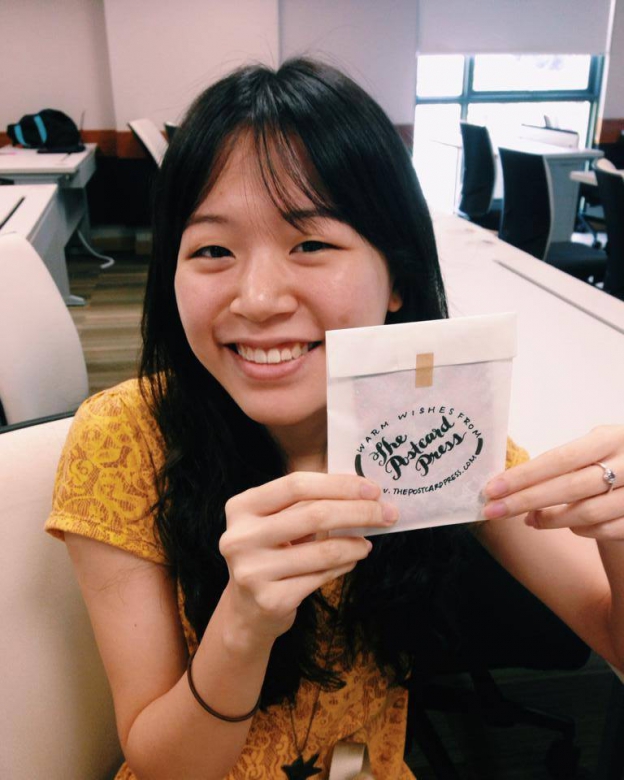SingaporeMotherhood | Parenting
January 2015
Homeschooling As An Option

The mandatory six-year primary school education scheme was implemented in 2003 in Singapore. Apart from government, autonomous and independent schools, there are a handful of choices for alternative educational paths in Singapore, such as San Yu Adventist School, Madrasahs and Victory Life Christian School. However, there are a minority of Singaporean students who do not adhere to the mainstream mode of education and are homeschooled instead.
[banner][/banner]
Why Swerve Off The Path of Convention?
In education-centred Singapore, it is no walk in the park to evade the Compulsory Education (CE) scheme by not being a part of an educational institution, as there exists the Primary School Leaving Examination (PSLE) which aims to test each child’s grasp of the subjects learned in school. Some may attest that there are private schools in Singapore with imported curriculums, which do not subject their students to the increasingly stressful PSLE. These, however, are international schools whose populations mostly comprise students of foreign nationalities. Although the homeschooling route is clearly not easy, it does not equate to being unfeasible. There are a myriad of reasons as to why parents who may have hosted other priorities or had concentrated on building their careers prior to having children, experience a calling to make the switch to being a full time parent cum teacher. Suwei, a mother in her 30s, who had taught in a mission school prior to deciding to homeschool her five children, urges parents to consider the following points:
1. Schools function with the aim of students achieving favourable results in their examinations, whereas parents possess the ability to prepare their children for adulthood which comprises work-life balance, marriage and the realm of family.
2. Schools’ methods of teaching are compartmentalized; Mathematics period is solely dedicated to Mathematics, whereas at home, there can be a lesson learnt from just about any minor development or experience.
3. Developing a child’s sense of morality is not something that can be fulfilled within two periods of Civics and Moral Education (CME) at school. In contrast, continuous interaction with the teacher at home ensures positive usage of language and encourages the honing of interpersonal skills.
4. Although there are extremely dedicated teachers at school, they might be lacking the experience of having raised their own children. This could place them at a disadvantage when it comes to imparting moral values and ensuring the emotional well-being of a child.
A homeschool has no boundaries. MieVee Wong who was born and educated in Singapore, currently resides in Malaysia with her husband and three children. She chose to homeschool her boys while they were still in their preschool years. She employs “early right brain education” by combining the Shichida Method and the Montessori Method in order to prepare them for independent learning. She sources for relevant and reliable information for her homeschool from both Singapore and Malaysia and beyond the region as well.
Her elder son is fast approaching primary school-going age. Ideally, the school she would opt to place him in would be a Montessori Method-based school which would allow him to learn at his own pace, exploring his interests, without tests and while having daily opportunities to work in groups consisting of children from mixed backgrounds. Since there are no such schools currently available, she intends for him to try out a local Chinese primary school first before deciding if she would rather continue homeschooling him instead. If she were to pick the latter, she will be handling the responsibility of ensuring that the boys get to learn and work in diverse groups. She regularly communicates with mothers who are also homeschooling their children. In our current era which is dominated by technology, like-minded individuals can easily be found and contacted via various social media platforms.
Kickstarting An Effective Homeschool
How do determined parents go about building their homeschool from scratch? Here is a list of steps to be followed for a smooth procedure:
1. Apply for a legal permit
In order to legalize your homeschool, you will first need to apply for Compulsory Education exemption at least six months before your child is due to start primary school education. After you have expressed your wish in writing to the Compulsory Education Unit (CEU), in order to attain the MOE certificate of CE exemption, you will need to submit the following documents:
- a completed version of the application form that will be mailed to you
- detailed syllabuses for English, Mother Tongue and Mathematics
- a detailed homeschooling timetable
- the teaching parent’s educational certificates
- a copy of the child’s birth certificate
2. Shop for a suitable curriculum
There is a vast range of curriculum options on sale in numerous bookstores islandwide, as proven by the publication “101 Top Picks for Homeschool Curriculum” by Cathy Duffy. However, you must bear in mind that you should not opt for the equivalent of your child’s academic level which corresponds to his or her age. Your homeschool curriculum should be tailored for your child’s academic abilities. For example, it would be better to go for a higher level of Mathematics and Science if your child displays a strong grasp of these subjects. Suwei uses the Accelerated Christian Education (ACE) curriculum in combination with the MOE’s Mathematics and Chinese syllabuses. Currently, many local parents of homeschoolers tune into Singapore Homeschool Curriculum Fair’s Facebook page to learn of updates regarding upcoming gatherings and book sales. Alternatively, there has been a new online homeschooling program titled “All Gifted High School” launched by a Singaporean with American accreditation targeted at students aged ten and above.
3. Start learning!
In stark contrast to a formal classroom setting, your homeschool could be just about anywhere at all without rigid fixed hours. Although it is essential for the MOE to know how much time is devoted by your child to studying, additional hands-on experiences such as outdoor photography, animal care or baking are of equal importance to a child’s holistic development. Agnes Lee (featured below), a former homeschooled student who is presently a student of Nanyang Technological University (NTU) while simultaneously running her own freelance business called “The Postcard Press”, shared with us her thoughts on her past homeschooling days. What were the things that she liked and disliked most about being homeschooled?
“The difficulties in securing facilities such as science laboratories and sports equipment were my main qualms. To some extent, I also felt a sense of unfairness since I could not obtain my student Ez-link card as I was not under the MOE.” Apart from those setbacks, she loved that she had the liberty and flexibility to pursue and develop her interests and abilities in an environment that prepared her to face life’s challenges in the future. Homeschooling offers a type of lifestyle which has vast potential for a child’s development and happiness which can be achieved with the aid of a personalized, disciplined and loving environment. Homeschooling is commonly misunderstood by many who are intently fixated on obtaining paper qualifications and well- paying jobs, both of which they believe are threatened by the act of leaving the domain of the traditional school environment.
Busting Homeschooling Myths
During the era of Agnes’ childhood, it was highly common for some Singaporean parents and peers to react negatively to the idea of young children not partaking in mainstream educational institutions. This notion still exists today. The very question that we had asked her, was posed to her frequently by people who were genuinely curious about homeschooling as well as those hostile towards the concept. Homeschoolers often have to bear with disrespectful comments made about their family’s choice of lifestyle throughout the span of their childhood and adolescence. It is a myth that the rare concept of homeschooling in Singapore is impossible to execute and spells failure for the child. In reality, a homeschooled child’s experience promises valuable lessons from beyond the boundaries of textbooks which are often compromised in a school environment these days.
“While homeschooling is often generalized, it should always be kept in mind that every family’s decision to homeschool their child is derived from different factors. The decision to homeschool itself is not at all a guaranteed formula for a blissful childhood. Neither is it an easy task to homeschool one’s child. However, as part of parents’ pursuits of their family’s happiness, homeschooling as a lifestyle and not simply as an academic method appears promising and worthwhile if handled effectively. I, for one, genuinely appreciate the steps my parents took to provide me with that lifestyle. Despite the periods of trial and error, and the things which we could have done better – things that I will do for my kids in future – it was a childhood with a depth and width of experience that I am very thankful for.” Well said, Agnes!
Is Homeschooling Here To Stay?
Undeniably, the alternative education scene in Singapore, particularly for homeschooling, has evolved well and continues to do so. The problems with booking facilities and gaining access to equipment which Agnes faced back then have now been eased. The Singapore Homeschool Group actively organises extra-curricular activities for its members and sources for the required facilities and equipment to be shared by everyone. With regards to academics, there is a benchmark homeschoolers are measured against at the age of 12 – the PSLE.
In 2011, 72 percent of homeschoolers met the 33 percentile mark or an aggregate score of 191. Failure to do so would result in he or she being welcomed for a second attempt before hitting the age of 15. MOE will then facilitate admission to national secondary schools or the student may choose to continue homeschooling. With the homeschool curriculum certification and one other recognized academic certificate such as the SAT, homeschoolers may apply to the institution of higher learning of their choice. Suwei’s oldest son had sat for the PSLE six years ago and in this blog entry, he shares with us his experiences. He obtained decent grades; an A*, 2 As and a B, but to both homeschooling parent and child, it is ultimately the journey that counts for more.
All content from this article, including images, cannot be reproduced without credits or written permission from SingaporeMotherhood.
Follow us on Facebook, Instagram, and Telegram for the latest article and promotion updates.






